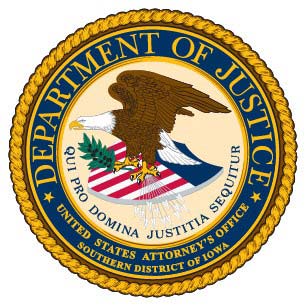Sioux Center, Iowa — Recent rains and flooding have cattle producers dealing with flooded pastures, water-logged facilities and manure management challenges.
Beth Doran, beef specialist for Iowa State University Extension and Outreach says that one of the first things to check is the structural strength of the livestock buildings, electrical equipment, and safety of the water systems. She says that the potential for flooded or spilled pesticides, fuel or oil spills and flooded grain bins should also be monitored.
Doran said taking care of animals is a priority.
She says moving cattle to drier areas is critical as wet feet can lead to foot rot and lameness. Producers will also want to watch for other signs of health issues and make sure their vaccination programs are current since soil and water-borne diseases can be present for months following flooding. According to Doran, there is also the potential for grazing animals to swallow storm debris, such as nails and staples. Consequently, cattle should be monitored for hardware disease.
Pasture management is critical. She says producers should remove any debris and return cattle to the pasture when the ground is dry and solid. Returning cattle too soon will trample the pasture and damage plants. If areas of the pasture are eroded or silt- or sand-covered, reseeding may be necessary.
For feedlots, another issue is manure containment structures that are full or possibly over-topping. Producers need to make sure the manure does not reach a water of the state, such as ditches, creeks or rivers, she said.
This may mean transferring manure to an alternative structure or releasing to a vegetative area, such as a hay field. If this is not possible, contact regional staff at the Iowa Department of Natural Resources to discuss emergency measures.
Doran says that there is little doubt that people who experience flooding are affected financially, but fortunately, there are a couple of disaster assistance programs for cattle producers.
Livestock producers with livestock or feed losses should contact their local United States Department of Agriculture Farm Service Agency to determine if they qualify, and what documentation and certification are required when applying for indemnification or assistance.
For more flooding information, the Iowa Beef Center and Iowa State University are addressing producer concerns in multiple ways with online resources available at www.iowabeefcenter.org and www.extension.iastate.edu/disasterrecovery/flooding.











